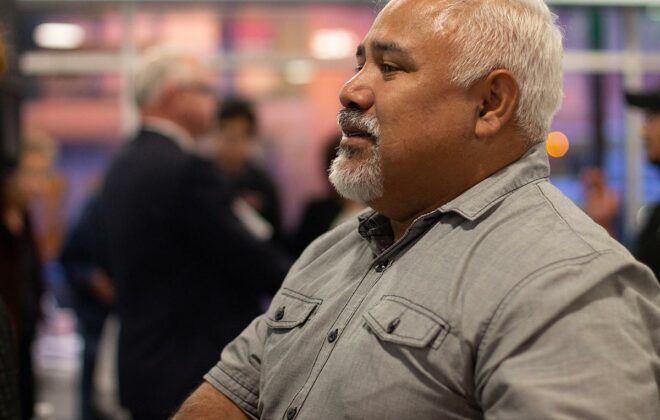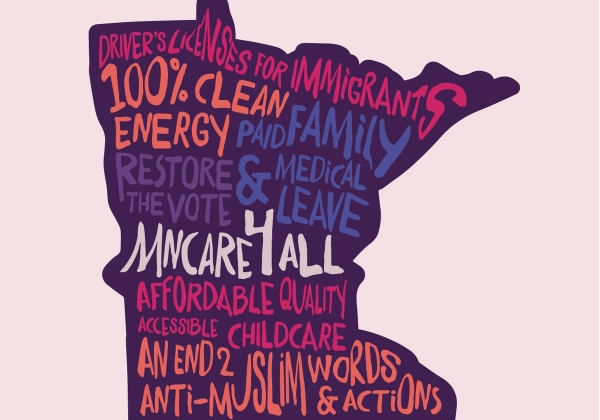ISAIAH Clergy Meet with Director of the Consumer Financial Protection Bureau
Today, June 15, 2016, we welcomed Director Richard Cordray of the Consumer Financial Protection Bureau (CFPB) to Minnesota to discuss and answer questions about the new federal rules to rein in predatory payday, car title, and consumer installment lending. The new rules are a bold step forward in regulating the predatory lending industry. Many people in our congregations are suffering at the hands of abusive payday lenders – and we applaud this move by the CFPB.
 Director Cordray and his staff met with several ISAIAH clergy including Bishop Richard Howell, Shiloh Temple; Pastor Billy C. Russell, Greater Friendship; Pastor Paul Slack, President of ISAIAH; Pastor Jin S. Kim, Church of All Nations; and Pastor Christian Vincent, Cross of Glory. “We asked questions about how to strengthen the existing rules and prevent any loopholes,” said Pastor Paul Slack. “We are particularly concerned about ensuring that the ability to repay the loan is taken into account. No one should be unable to take care of basic needs because of unfair, usurious lending practices.“
Director Cordray and his staff met with several ISAIAH clergy including Bishop Richard Howell, Shiloh Temple; Pastor Billy C. Russell, Greater Friendship; Pastor Paul Slack, President of ISAIAH; Pastor Jin S. Kim, Church of All Nations; and Pastor Christian Vincent, Cross of Glory. “We asked questions about how to strengthen the existing rules and prevent any loopholes,” said Pastor Paul Slack. “We are particularly concerned about ensuring that the ability to repay the loan is taken into account. No one should be unable to take care of basic needs because of unfair, usurious lending practices.“
The new rules are aimed at ensuring that borrowers have the ability to repay, covering both short and long term loans. We are thankful that the CFPB closed one significant loophole by not including the carve-out for payday loans if payments are less than 5% of a borrower’s income. We agree that any ability to repay standard must include both income and expenses. But there are other critical loopholes that remain. We encourage the CFPB to strengthen these rules even further by closing a few key loopholes including: requiring an ability-to-repay determination on every loan, a limit to indebtedness to 90 days per year, added protections against flipping loans, and ensuring that lenders must demonstrate that borrowers are left with enough money to pay their necessary expenses.
Next week a delegation of ISAIAH clergy will head to Washington DC to visit members of the Minnesota congressional delegation, engage Director Cordray in a follow-up conversation with the national Stop the Debt Trap campaign, and continue to work to protect our families from this unscrupulous predatory industry. In the coming weeks and months people of faith across Minnesota will be working to support strong federal rules and a statewide interest rate cap.
Payday loans in Minnesota cost 273% annual interest, and a typical payday borrower is stuck in 10 transactions a year. Payday lenders in Minnesota strip away $10 million a year in fees from people who earn $25,000 on average. We encourage people to submit their own comment to the CFPB to stop the debt trap at www.faithforfairlending.org/PICO.
Related Posts
Categories
- Announcements (11)
- Childcare (8)
- Community Safety (10)
- Criminal Justice (18)
- Democracy (28)
- Economy & Jobs (27)
- Education (16)
- Environment (11)
- Faith (15)
- Health (22)
- Housing (30)
- Immigration (31)
- Islam (11)
- Newsletter (34)
- One Body (2)
- Other Issue Work (14)
- Public Safety (3)
- Report (7)
- Transit (19)
- Uncategorized (40)
- Working Families (18)



